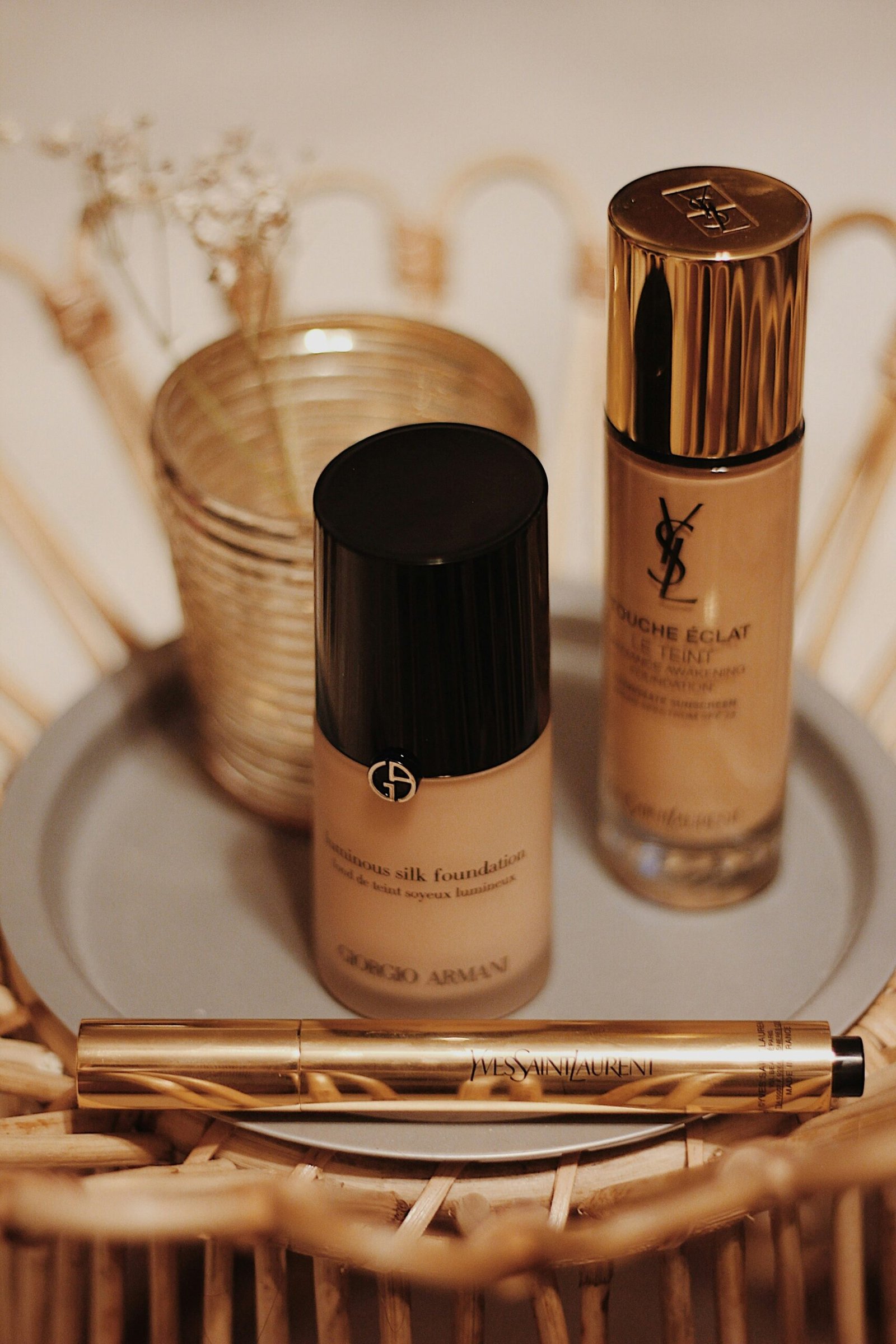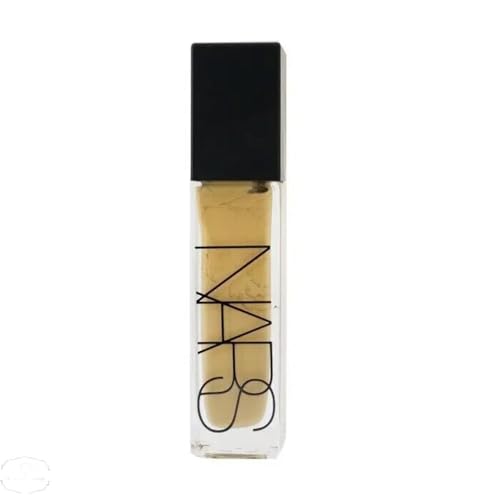
Understanding Skin Types
Understanding your skin type is a crucial step in selecting the ideal foundation that complements your unique needs. Skin types are typically categorized into five main varieties: normal, dry, oily, combination, and sensitive. Each type possesses distinct characteristics that affect how makeup, especially foundation, performs throughout the day.
Normal skin is well-balanced, exhibiting neither too much oil nor excessive dryness. Individuals with this skin type often experience fewer disruptions such as breakouts or irritation, allowing for a wider range of foundation choices. Dry skin, characterized by a lack of moisture, may appear flaky or rough. For those with dry skin, it is essential to choose a hydrating foundation that locks in moisture without exacerbating any dryness.
Oily skin is marked by an overproduction of sebum, which can lead to a shiny complexion and an increased risk of acne. Foundations designed for oily skin generally contain oil-absorbing ingredients to help maintain a matte finish and combat shine throughout the day. Combination skin combines elements of both oily and dry skin, often resulting in oiliness in the T-zone and dryness elsewhere. Finding a suitable foundation for combination skin typically requires a balance that addresses both needs.
Last but not least, sensitive skin can react adversely to various makeup formulations, leading to redness, itching, and other irritations. For sensitive skin types, hypoallergenic foundations with gentle ingredients are often recommended to minimize the risk of adverse reactions. Furthermore, skin types can change due to environmental factors, such as seasons and aging, leading to variations in moisture levels and oil production. These changes necessitate a reevaluation of foundation choices to ensure optimal performance and skin health over time.
Foundation Formulations: Which is Right for You?
Choosing the right foundation formulation is crucial for achieving a flawless makeup look, especially considering the various skin types and their unique needs. There are several common types of foundations, including liquid, cream, powder, and stick foundations, each with distinct characteristics and suitability for different skin types.
Liquid foundations are one of the most popular forms available. They provide a range of coverage options, from sheer to full, making them versatile for various occasions. Liquid foundations are often water-based or oil-based, allowing for easy blending and a natural finish. However, individuals with oily or acne-prone skin may need to opt for water-based, matte formulas to prevent excess shine and breakouts. Key ingredients like salicylic acid can also be beneficial for acne-prone skin.
Cream foundations have a thicker consistency and provide excellent coverage, making them ideal for dry or mature skin types. Their hydrating properties help to create a dewy finish, smoothing out fine lines and imperfections. However, those with oily skin should be cautious, as cream foundations can exacerbate shine and clog pores. Ingredients such as hyaluronic acid can enhance hydration without being overly heavy on the skin.
Powder foundations are a great option for oily skin types, as they absorb excess oil and provide a matte finish. They are easy to apply and can be built up for desired coverage. Nevertheless, powdered formulas can settle into fine lines and dryness, making them less suitable for individuals with parched skin. Foundational powders with added skincare benefits, like kaolin clay, can help control shine without feeling heavy.
Stick foundations offer convenience and portability, ideal for touch-ups throughout the day. They provide medium to full coverage but may not blend as seamlessly as liquid or cream formulations. Stick foundations may suit various skin types depending on their ingredients; for example, a moisturizing stick can benefit dry skin, while a matte formula is better for oily complexions.
In conclusion, understanding the different types of foundations and their formulations will help individuals make informed choices that align with their specific skin needs. By considering the key ingredients and how they interact with one’s skin type, it is possible to achieve a flawless and lasting look.
Top Foundation Recommendations for Every Skin Type
Choosing the right foundation is essential for achieving a flawless complexion that meets the unique needs of various skin types. Below are curated recommendations for foundations tailored to different skin concerns, ensuring that everyone can find a suitable option that provides both coverage and comfort.
For Oily Skin: The Estée Lauder Double Wear Stay-in-Place Makeup stands out as an exceptional choice due to its long-lasting formula and matte finish. This high-end foundation offers full coverage while controlling excess oil, minimizing shine throughout the day. Its staying power makes it ideal for those with oily skin who require a dependable foundation.
For Dry Skin: Consider the Charlotte Tilbury Hollywood Flawless Filter, a versatile foundation that hydrates and brightens the skin, catering to those with dry conditions. This product features a dewy finish that imparts a luminous glow without clinging to dry patches or enhancing texture. It is enriched with skincare benefits, making it both a cosmetic and treatment solution.
- Smoothing airbrush polymers for a poreless, flawless looking finish
- Glow booster in an olive shade for medium skin tones
- Brightening Porcelain Flower Extract, derived from a Thai flower for brighter looking skin
For Combination Skin: The NARS Natural Radiant Longwear Foundation offers a balance of hydration and oil control, making it perfect for combination skin. With medium to full coverage, it adapts to varied areas of the face, providing a natural finish that endures. Its lightweight formula allows for comfortable wear throughout the day while remaining resistant to common wear-and-tear issues.
- Full coverage without the weight; Patent pending technology delivers a uniquely weightless and breathable texture with s…
- Mimics skin’s tone with a unique combination of a translucent base with micronized amino-acid coated pigments and minera…
- Nars Natural Radiant Longwear Foundation
For Sensitive Skin: The Clinique Even Better Glow Light Reflecting Makeup serves as an ideal choice for those with sensitive skin. This fragrance-free option is known for its soothing properties and soft coverage, ensuring that it does not irritate the skin. It provides a radiant finish, perfect for enhancing the natural beauty without risking discomfort.
For Mature Skin: The Lancôme Teint Idole Ultra Wear Foundation is designed with mature skin in mind, offering hydration and a smooth, radiant finish. This foundation is lightweight yet buildable, allowing for customizable coverage without settling into fine lines. Its formulation aims to enhance the skin’s elasticity, providing a youthful appearance.
Application Tips and Tricks for Flawless Skin
Achieving a flawless finish with foundation starts with proper skin preparation. Priming is a fundamental step that should not be overlooked, as it creates a smooth canvas for your foundation. Selecting a primer that caters to your skin type will enhance the longevity of your foundation and help in achieving a polished look. For oily skin, a mattifying primer is advisable, while those with dry skin may benefit from hydrating options. A silicone-based primer can smooth out texture, making it suitable for most skin types.
When it comes to the application methods, one has several choices. Using a brush allows for a precise and even distribution of foundation, particularly useful for liquid formulas. Brushes with dense bristles can offer a fuller coverage, while those with softer bristles can provide a lighter finish. Makeup sponges, on the other hand, are excellent for blending, giving a seamless and natural look. Dampen the sponge slightly for a better application; this technique can also enhance hydration. Finally, applying foundation with fingers can warm the product and help it meld into the skin, although this method may not offer the same level of coverage as brushes or sponges.
Setting your foundation is essential to ensure it lasts throughout the day. A translucent powder can help control shine and provide a matte finish, suitable for most skin types. For dry skin, a setting spray may be preferable, as it adds moisture and prevents the foundation from looking cakey. Environmental factors such as humidity and temperature can impact foundation wear. In high humidity, using a matte setting spray can help prevent the makeup from sliding off, while in dry conditions, a hydrating mist may be used for refreshing throughout the day.
Lastly, for touch-ups, carry a compact powder or a setting spray in your bag to ensure your foundation remains flawless. Remember to lightly blot any excess oil with a tissue before applying additional product to avoid build-up. By adopting these application tips and maintaining your foundation diligently, achieving a radiant and natural complexion is attainable, regardless of the conditions faced.










